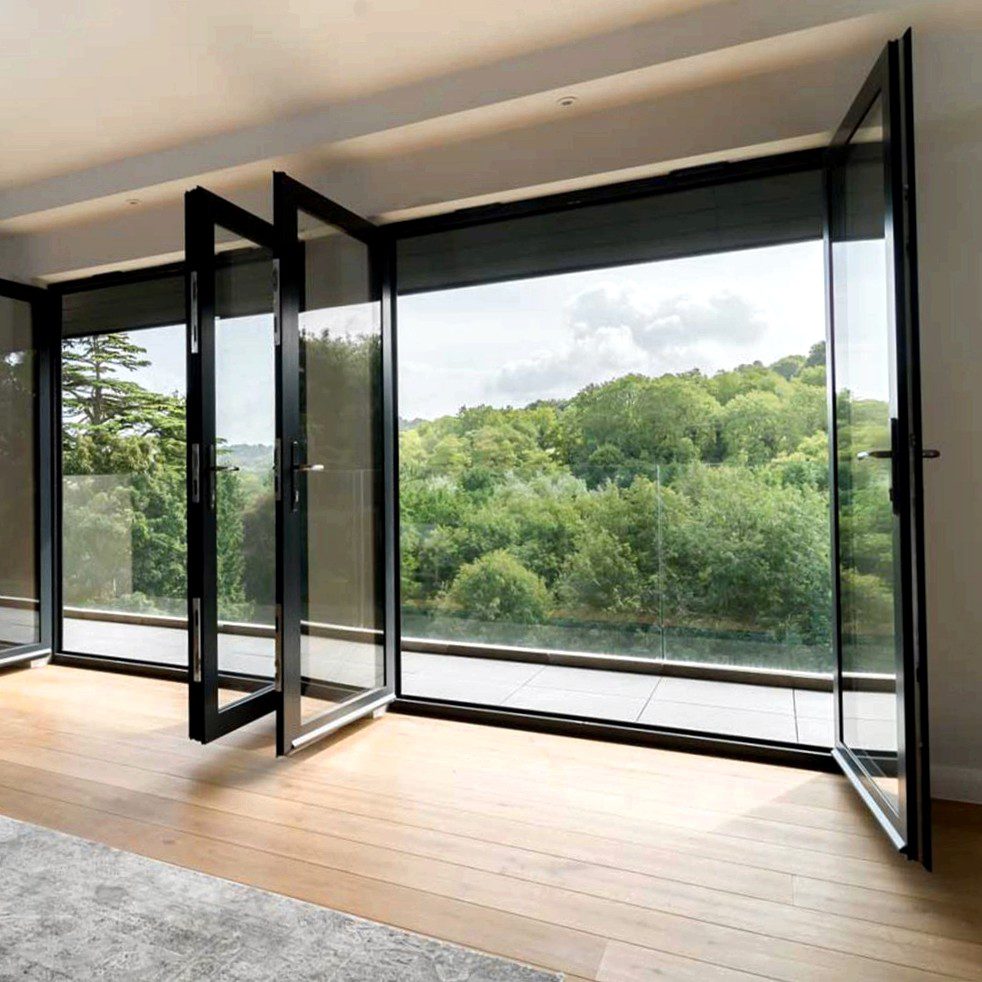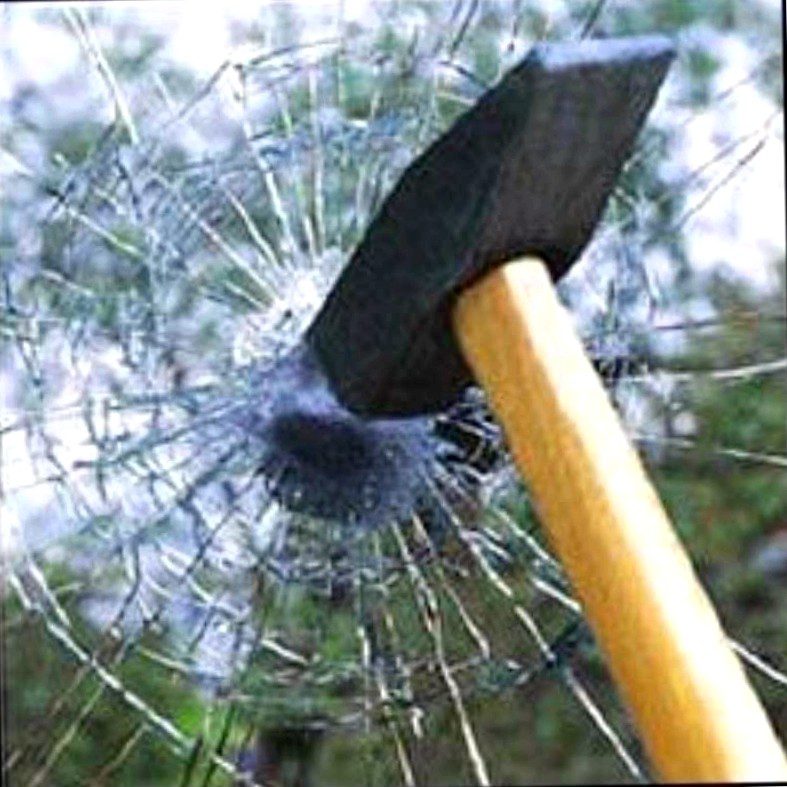The all-rounder security glass and its use in house construction

Safety glass is an indispensable part of modern houses and buildings. This particular glass offers a variety of benefits and is multi-talented in terms of its use in building construction. It is extremely robust and resistant to external influences such as wind, rain and impacts. Safety glass is a good choice especially in terms of the safety of people and property.
Another practical property of safety glass is its excellent thermal insulation. This means it can help improve a building’s energy efficiency, saving money in the long run. It can also provide sound insulation, which is particularly beneficial in noisy residential areas or near airports and highways.
Safety glass can also be used in various shapes and designs to enhance the aesthetics of a home. There are various manufacturing processes that allow safety glass to be produced in different colors and textures. In summary, safety glass is an excellent choice for home builders who value safety, energy efficiency and attractive appearance.
The multi-talented safety glass and its use in house construction
Safety glass is a specially treated glass that provides a higher level of safety due to its increased stability and resistance. It is often used in windows and doors to make it more difficult for burglars to break in. Safety glass can be made of both toughened safety glass (ESG) and laminated safety glass (LSG).
In home construction, safety glass is often used in areas where it is exposed to particular stresses, such as balcony and patio doors or shower enclosures. Its increased stability and resilience can significantly improve protection against intruders and accidents.
- It can protect children running around the house from possible cuts.
- It can protect against flying objects during natural disasters or storms.
- It can prevent injuries in case of accidental breaking through the door or window.
In addition to the safety aspect, safety glass is also becoming increasingly popular in house construction due to its aesthetic effect. It is available in many different colors and designs and can create a modern and elegant atmosphere. However, it is important to always use a qualified professional when installing safety glass to ensure safe and durable installation.
Overall, safety glass offers a variety of benefits in home construction and can help minimize the risk of accidents and break-ins.
The all-rounder safety glass and its versatile applications in house construction
Safety glass is an important component of modern house construction. It is made of specially tempered glass, which provides increased resistance to external influences. Furthermore, it cannot shatter if damaged, which minimizes the risk of injury.
Applications of safety glass in home construction include:
- Glass facades
- Balcony and staircase railings
- Shower enclosures
- Windows
- Glass walls and doors
Another application of safety glass is spandrel glass. These are often installed in the attic or on exposed balconies to prevent falls while providing a view. Safety glass is also popular in swimming pool construction to ensure high stability in the presence of high humidity and aggressive chlorinated water.
Advantages of safety glass in house construction are:

- High resistance to external influences
- Minimization of the risk of injury in case of damage
- Increased stability and safety for railings and balustrades
- Visual enhancement and permeability of rooms with glass walls and doors
Overall, safety glass is an indispensable component of modern house constructions and offers a wide range of possible applications.
Advantages of safety glass in house construction
Safety glass is an all-rounder in house construction, it not only provides effective protection against burglary, but also against injury from shattering glass in emergencies. The glass is processed by special procedures, making it more resistant to external influences, such as bullets or impacts.
Another important advantage of safety glass is that it can be used as an energy-saving measure. Lower heat loss can reduce energy consumption, which has a positive impact on costs. In addition, it can be used as a soundproofing element to reduce noise from the outside and thus increase the well-being in the house.
In addition, safety glass is extremely durable and requires little maintenance. It can be supplied in various finishes and colors to meet individual needs and design ideas. It can also be used outdoors as it is UV resistant and does not yellow in the sun.
In summary, safety glass offers a variety of advantages in the construction of houses. It not only protects against break-ins and injuries, but also saves energy and reduces noise. It is extremely durable, requires little maintenance and can be customized.
Types of safety glass
Safety glass is an important component in construction work. There are different types of safety glass, which can be selected depending on the area of application. A common variety is toughened safety glass (ESG), which is made by heating and then cooling rapidly.
Other variants include laminated safety glass (LSG), which consists of several layers and meets particularly high safety requirements, and heat-strengthened glass (TVG), which is characterized by a higher breaking strength.
The type of safety glass chosen for a building project depends primarily on safety and stability requirements. However, aspects such as energy efficiency and aesthetics should also be taken into account when making a selection.
- Safety glass is particularly suitable for use in showers and balcony glazing.
- VSG is a good choice for windows and doors that are exposed to high loads.
- TVG is suitable for glass doors and facades.
When building a house, it is important that the safety glass used is of high quality in order to ensure safety and comfort in the building.
Please note that when using safety glass, appropriate standards and regulations must also be considered.
The cost of safety glass and conventional glass in comparison
When building a house, the choice of the right material plays a decisive role. In this regard, the glass is also of particular importance, as it is not only an important component of the window, door frame and balcony glazing, but also has an aesthetic effect. However, the cost of safety glass is higher than that of conventional glass.
Safety glass is a special form of glass that has a higher breaking strength than conventional glass. There are different types of safety glass, such as laminated safety glass or toughened safety glass (toughened safety glass). These variants offer greater safety due to their higher breakage and impact resistance, as well as their shatter-binding properties. However, the increased level of security is also reflected in the cost.
The cost of safety glass is higher compared to conventional glass. The difference can vary depending on the type and size of the glass. However, for larger glass areas, the price difference can be significant. Despite the higher cost, however, security glass is often used in home construction because it offers greater protection, justifying the increased cost.
To reduce the cost of security glass, there are several ways to do it. One of them is choosing the right supplier that offers high quality at a cheaper price. Another starting point is to choose the right thickness of glass, which can be selected depending on the type of application and resistance.
In summary, when building a house, the cost of safety glass is higher than conventional glass. However, the higher cost is justified by the increased security that comes with using safety glass. So when building a home, it pays to weigh the pros and cons of traditional and security glass and make an informed decision.
